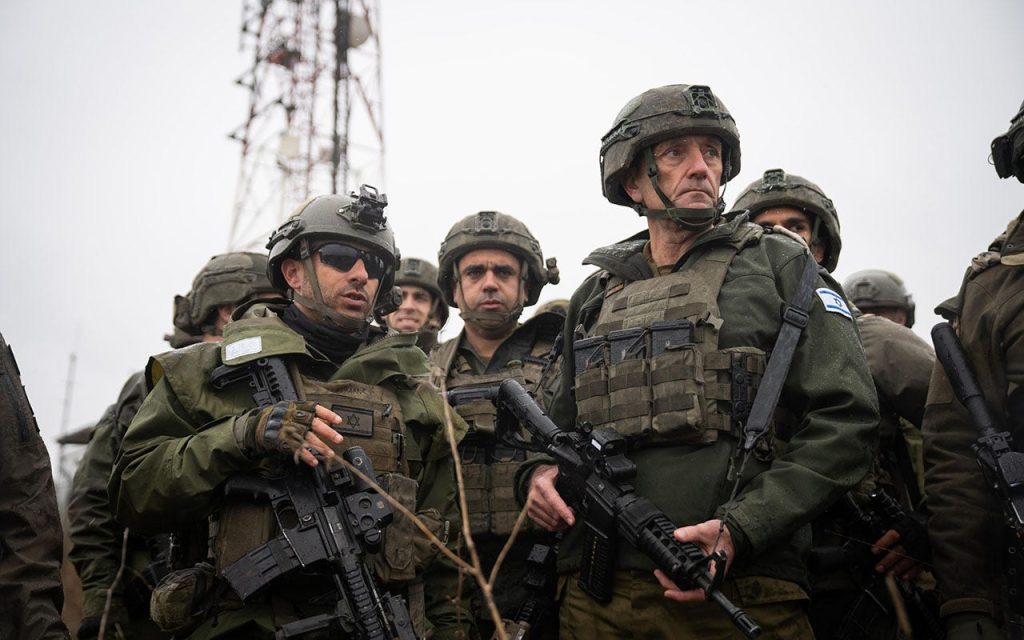The enduring conflict between Israel and Hezbollah, the Iran-backed militant group based in Lebanon, has entered a new phase characterized by a tenuous ceasefire and a shift in Israeli strategy. While Israel asserts military dominance, its focus has broadened beyond immediate tactical gains to encompass long-term societal resilience and economic prosperity in the northern border regions. This strategic recalibration, articulated by Lieutenant General Herzi Halevi, Chief of the General Staff of the Israel Defense Forces (IDF), underscores a belief that true victory lies not solely in military prowess but in the revitalization of civilian life along the volatile border.
Halevi’s recent visit to southern Lebanon, accompanied by high-ranking military officials, served as a symbolic affirmation of this strategic pivot. His pronouncements emphasized the necessity of robust civilian presence, flourishing tourism, and economic activity as the ultimate determinants of victory. This perspective highlights a growing recognition within Israel that military successes, while crucial, are insufficient to secure long-term stability and deter future conflicts. The focus on civilian life represents a concerted effort to bolster the resilience of border communities, making them less vulnerable to Hezbollah’s intimidation tactics and strengthening Israel’s overall security posture.
The current ceasefire, holding for over a month, offers a fragile window of opportunity for this long-term strategy to take root. Despite the agreement, the IDF has continued operations in southern Lebanon, primarily targeting Hezbollah’s infrastructure, including tunnels and command centers. This activity underscores the delicate balance Israel is attempting to strike: maintaining pressure on Hezbollah while simultaneously fostering an environment conducive to civilian recovery. The IDF’s actions are aimed at dismantling Hezbollah’s operational capabilities and disrupting its ability to launch future attacks, thereby creating space for the envisioned civilian resurgence.
However, the ceasefire remains precarious, marked by underlying tensions and mutual distrust. Hezbollah’s alleged attempts to smuggle weapons across the Lebanese-Syrian border, as reported by Israeli officials, raise concerns about the group’s commitment to de-escalation and its potential intentions to rearm. These actions, perceived by Israel as provocative tests of its resolve, highlight the inherent instability of the current situation and the challenges facing the implementation of a long-term peace. The precarious nature of the ceasefire underscores the need for vigilance and proactive measures to prevent a resurgence of violence.
The recent conflict, triggered by the October 7th attacks and Hezbollah’s subsequent rocket barrage, resulted in significant displacement of civilian populations on both sides of the border. While hundreds of thousands of Lebanese citizens have started to return home since the ceasefire, thousands of Israelis who evacuated border villages remain hesitant to return. This reluctance reflects the lingering fear and uncertainty that permeates the region, hindering the very civilian revitalization that Israel sees as essential to its long-term security strategy. Rebuilding trust and fostering a sense of security among the civilian population is a critical component of Israel’s plan, and one that faces significant hurdles.
The success of Israel’s strategy hinges on a complex interplay of factors: the durability of the ceasefire, the effectiveness of ongoing security operations, the willingness of displaced civilians to return, and the government’s commitment to investing in the economic and social infrastructure of the border region. The IDF’s continued operations aim to create a secure environment conducive to civilian life, while the state’s envisioned investments in infrastructure and economic development aim to make these areas attractive for residents and businesses alike. However, the underlying tensions and mutual distrust that characterize the Israeli-Hezbollah relationship pose a constant threat to this ambitious endeavor, demanding a delicate balancing act between security concerns and the pursuit of long-term stability. The true test of this strategy will be its ability to withstand the inevitable challenges and foster lasting peace in a region long plagued by conflict.


